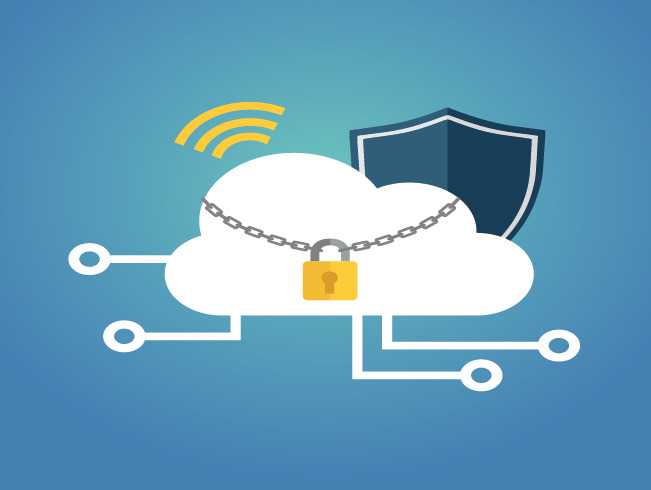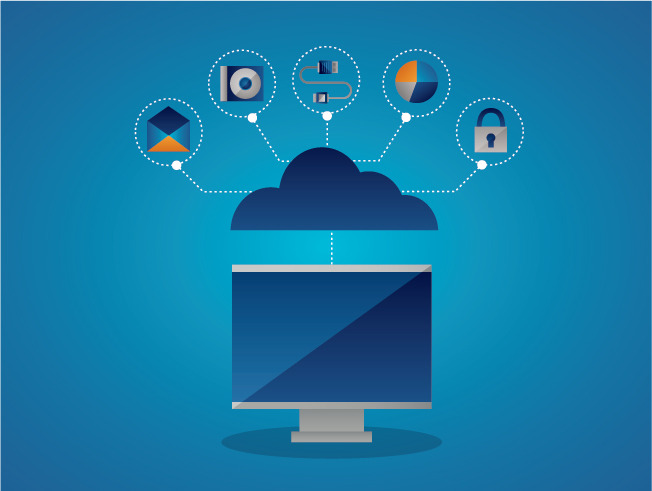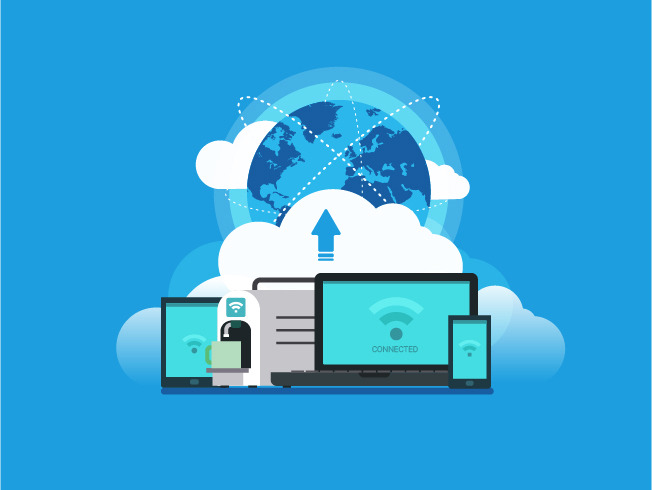

Cloud security refers to the set of technologies, processes, and controls that are put in place to protect cloud-based systems, applications, and data from unauthorized access, attacks, and data breaches. It encompasses a wide range of security measures, including encryption, access controls, threat detection and prevention, identity management, and data loss prevention.
One of the key advantages of using cloud security services is the level of expertise and resources they bring. Cloud service providers have dedicated teams of security professionals who monitor and manage security risks around the clock, ensuring that your data is protected from both external and internal threats.
Additionally, cloud security services offer advanced features such as real-time threat intelligence and automated security updates, which can greatly enhance your organization’s ability to detect, prevent, and respond to cyber threats. With these services, businesses can have peace of mind knowing that their critical data is being protected by the latest security technologies and best practices.
Cloud security services are specialized solutions that are designed to protect cloud-based systems, applications, and data from the increasing threats of cyber attacks and data breaches. These services offer a wide range of features and capabilities to enhance the security posture of organizations operating in the cloud.
First and foremost, cloud security services provide robust encryption mechanisms to safeguard data both in transit and at rest. This ensures that even if unauthorized users gain access to the data, it will be unreadable and unusable without the encryption keys.
Cloud security services also utilize advanced threat detection and prevention techniques, leveraging machine learning and artificial intelligence to identify and respond to potential threats in real-time. This proactive approach helps organizations stay one step ahead of cybercriminals and minimize the impact of security incidents.
Lastly, cloud security services provide continuous security updates and patches, ensuring that organizations are protected against the latest vulnerabilities and exploits. By automating these critical security tasks, organizations can focus on their core activities while benefitting from up-to-date protection.
(IAM) is a crucial component of cloud security services. IAM allows organizations to manage and control user access to cloud resources, ensuring that only authorized individuals can access sensitive data and applications.
IAM solutions provide organizations with the ability to define and manage user identities, assign appropriate access rights and permissions, and enforce strong authentication measures. This helps to prevent unauthorized access and minimizes the risk of data breaches and insider threats.
With IAM, organizations can implement multi-factor authentication, requiring users to provide multiple forms of verification to authenticate themselves. This significantly enhances the security of user accounts and adds an extra layer of protection against unauthorized access attempts.
IAM solutions also enable organizations to enforce password policies and periodic password resets, reducing the risk of weak or compromised passwords. Additionally, organizations can implement role-based access control (RBAC) policies, ensuring that users only have access to the resources necessary for their job responsibilities.

Cloud network security solutions provide organizations with the tools and technologies needed to safeguard their network infrastructure. These solutions employ various techniques such as firewalls, intrusion detection and prevention systems, virtual private networks (VPNs), and network segmentation.
Virtual private networks (VPNs) allow organizations to establish secure connections over the internet, encrypting data and ensuring its confidentiality and integrity. This is especially crucial when employees need remote access to cloud resources.
By implementing robust measures, organizations can safeguard their cloud infrastructure and protect their data and resources from unauthorized access, data breaches, and potential cyber threats. In the next section, we will delve into the significance of threat intelligence in cloud security services.
Cloud security services also encompass protection for virtual machines (VMs), which are essential components of cloud computing. VMs allow organizations to maximize their resource utilization and scalability by creating multiple virtual instances on a single physical server.
Securing VMs is crucial as they can be vulnerable to various cyber threats, including malware, data breaches, and unauthorized access. Cloud security services provide robust measures to ensure the integrity and confidentiality of VMs.
One key aspect of VM security is hypervisor security. The hypervisor is a software layer that enables the creation and management of VMs. It is responsible for allocating resources, isolating VMs, and enforcing security policies.
Cloud security services include hypervisor hardening and monitoring to mitigate the risk of attacks on the hypervisor. This involves configuring and patching the hypervisor to eliminate potential vulnerabilities and continuously monitoring its activity for any signs of compromise.
Furthermore, VM security also involves implementing access controls and encryption for VM images and virtual disks. Access controls ensure that only authorized users can modify or access VM resources, while encryption protects the confidentiality of VM data.
In addition to securing virtual machines (VMs) in the cloud, organizations must also ensure the security of their Office 365 environment. Office 365 is a suite of productivity tools and services that enable collaboration and communication within an organization.
With the increasing adoption of Office 365, it has become a prime target for cybercriminals looking to exploit vulnerabilities and gain unauthorized access to sensitive data. Therefore, implementing robust security measures for Office 365 is paramount to protect valuable information and maintain data privacy.
Cloud security services for Office 365 encompass various aspects, including email security, data loss prevention, and multifactor authentication. These services help detect and prevent phishing attacks, spam emails, and malware. They also enable organizations to enforce data protection policies and prevent accidental or intentional data leaks.
Furthermore, multifactor authentication adds an extra layer of security by requiring users to provide additional verification, such as a password and a one-time code, when accessing Office 365 applications.
By leveraging cloud security services for Office 365, organizations can ensure the confidentiality, integrity, and availability of their data, email communication, and collaborative workspaces. In the following section, we will discuss the benefits of cloud security services for mobile devices in enhancing overall cybersecurity.
While securing Office 365 is crucial, organizations must also focus on securing their cloud infrastructure. Two popular cloud providers, Microsoft Azure and Amazon Web Services (AWS), offer robust security services to protect data and applications hosted in their respective environments.
Azure Security provides a comprehensive set of tools and features to safeguard cloud resources. It includes services such as Azure Security Center, which provides threat intelligence, advanced threat detection, and vulnerability assessment. Additionally, Azure Active Directory enables strong identity and access management, ensuring only authorized users can access resources.
On the other hand, AWS Security offers a wide range of services to protect data and applications hosted on the AWS cloud. These services include AWS Identity and Access Management (IAM), which allows organizations to manage and control user access to AWS resources. AWS CloudTrail provides auditing and monitoring capabilities, while AWS Shield provides protection against DDoS attacks.
In addition to Azure Security and AWS Security, organizations need to incorporate cloud firewalls and adopt a DevSecOps approach to further enhance their cybersecurity measures.
Cloud firewalls act as a strong line of defense by filtering incoming and outgoing network traffic. They monitor and control data packets, limiting access to unauthorized users and preventing malicious activities. By implementing cloud firewalls, organizations can mitigate the risk of unauthorized access and potential data breaches.
Furthermore, adopting a DevSecOps approach ensures that security is integrated into every stage of the development process. It emphasizes collaboration between development, operations, and security teams, enabling the early identification and resolution of security vulnerabilities. Through automated security testing, continuous monitoring, and rapid incident response, organizations can proactively address security risks and protect their cloud infrastructure.
While implementing cloud firewalls and adopting a DevSecOps approach are crucial steps in enhancing cybersecurity, organizations must also focus on implementing web and email security solutions.
Web security solutions protect against various web-based threats, such as malware, ransomware, and phishing attacks. With the increasing number of employees working remotely, web security solutions play a critical role in safeguarding against malicious websites and unauthorized downloads. These solutions provide real-time scanning and analysis of web traffic to detect and block any suspicious activity, ensuring a safe browsing experience for employees.
Email security solutions, on the other hand, protect against email-based threats, such as spam, phishing, and spoofing attacks. These solutions include features like email filtering, encryption, and anti-malware scanning. By implementing email security solutions, organizations can prevent unauthorized access to sensitive information and reduce the risk of falling victim to email scams.
One important cloud security service is data encryption. This involves encrypting sensitive data before it is stored in the cloud, making it unreadable to unauthorized users. Encrypted data can only be decrypted with a unique encryption key, ensuring that even if data is compromised, it remains protected.
Another important service is identity and access management (IAM). IAM allows organizations to control and manage access to their cloud resources. By assigning unique identity credentials and implementing multi-factor authentication, organizations can prevent unauthorized access to sensitive data and applications.
Additionally, network security services, such as virtual private networks (VPNs) and intrusion detection systems (IDS), can help organizations secure their cloud infrastructure by encrypting data transmitted over networks and identifying any malicious activities.
In the following section, we will explore the benefits of implementing these cloud security services and how they contribute to an overall robust cybersecurity framework.

Implementing cloud security services is a crucial step in enhancing cybersecurity, but it is equally important for organizations to follow best practices to maximize the effectiveness of these services. Here are some key recommendations:
Before implementing cloud security services, organizations should conduct a thorough assessment to identify potential risks and vulnerabilities. This will help in selecting the appropriate security measures and configuring them accordingly.
Keeping all cloud systems, applications, and software up to date with the latest security patches is essential. Regular updates help address any known vulnerabilities and protect against emerging threats.
Employees play a significant role in maintaining cybersecurity. Conduct regular training sessions to educate them about best practices, such as creating strong passwords, recognizing phishing attempts, and understanding the importance of data security.
Implementing robust logging and monitoring mechanisms enables organizations to detect and respond to any suspicious activity in real-time. Regularly analyzing logs can help identify potential threats and facilitate timely action.
Periodic testing and auditing of cloud security services are vital to ensure their effectiveness. Conduct penetration testing and vulnerability assessments to identify any weaknesses and proactively address them.
In addition to enhancing overall cybersecurity, cloud security services can also play a vital role in improving network security. With the increasing complexity and sophistication of cyber threats, organizations need robust solutions to safeguard their networks. Cloud security services offer several features that aid in network security:
Network segmentation: Cloud security services allow organizations to create separate network segments for different departments or purposes. This segmentation helps minimize the impact of a security breach by containing it within a specific segment, preventing lateral movement across the network.
Intrusion detection and prevention: Many cloud security services offer advanced intrusion detection and prevention capabilities. These systems continuously monitor network traffic, looking for unauthorized access attempts or suspicious behavior. In case of any such activity, they can take immediate action to block or mitigate the threat.
Virtual private networks (VPNs): Cloud security services often include VPN functionality, providing secure, encrypted connections for remote access to the network. This helps protect sensitive data transmitted over the internet and reduces the risk of unauthorized access.

Selecting the right cloud security provider is paramount to ensuring the safety and integrity of your data in the cloud. With the increasing importance and reliance on cloud services, it is crucial to partner with a reputable and reliable provider that offers robust security measures. Here are some factors to consider when choosing a cloud security provider:
Look for a provider with a proven track record in cloud security. They should have extensive experience in securing cloud environments and protecting sensitive data. Research their reputation and client testimonials to ensure their expertise aligns with your organization’s needs.
Assess the range of security services offered by the provider. They should have a comprehensive suite of security solutions that address various aspects of cloud security, such as data encryption, access management, threat detection, and vulnerability management. Ensure their offerings align with your organization’s specific security requirements.
Consider the scalability and flexibility of the provider’s security services. As your organization grows and evolves, you may require additional security measures or need to adapt existing ones. The provider should be able to accommodate your changing needs and offer scalable security solutions that can grow with your business.
By considering these factors, you can make an informed decision when selecting a cloud security provider. Remember that every organization’s security requirements are unique, so it is essential to choose a provider that can tailor their services to meet your specific needs. Investing in the right cloud security provider will provide peace of mind, knowing that your data is protected in the cloud.
cloud security services are essential for protecting your organization’s data and applications in the cloud. By understanding the key components and types of cloud security services, you can make informed decisions about your organization’s security needs. Meta Techs’ training programs can help you enhance your skills in this critical area, ensuring that your cloud-based assets remain secure and your organization stays ahead of evolving threats.
To learn more about Meta Techs’ Cloud Security Training and explore their range of solutions, visit our website Gain the competitive edge and ensure the security of your cloud infrastructure with MetaTechs‘ industry-leading training programs.Cloud Security Services.
Call now to explore our innovative services and make your experience with us unique and fruitful
WhatsApp us
